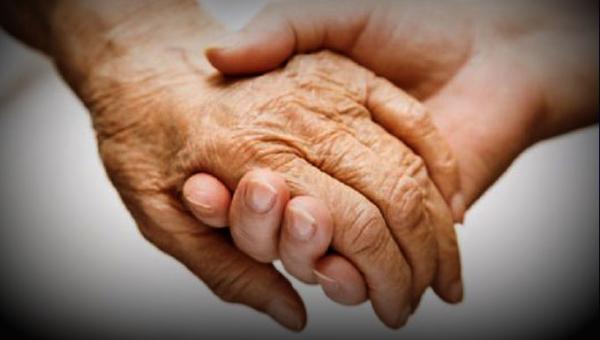With right-to-die legislation in its fledgling stages in the United States, the bioethics surrounding assisted suicide are in play as they haven’t been in the past. Traditionally, arguments to enact these laws are fashioned around the notion of liberating a patient from terminal usually insufferable disease. But, the recent intentional death by 104-year-old scientist David Goodall via euthanasia brings to the forefront whether to deem deterioration from advanced aging as another reasonable consideration.
So determined was the British-born scholar, who failed in prior attempts in his home country of Australia where it is illegal, that he traveled to Switzerland to fulfill this quest. And, so he did by personally starting a lethal injection of a barbiturate on Thursday.
Why did he do it?
"My abilities and eyesight are declining, and I no longer want to live this way...I hope something positive will come out of my story and that other countries will adopt a more liberal view of assisted suicide...I'd like to be remembered as an instrument for freeing the elderly to choose their own death...I am happy to have this opportunity, which I call the Swiss option...I just wish Australia offered me this possibility. But other countries lag behind Switzerland...Up to the age of 90 I was enjoying life, but not now...It has passed me by, and I have done the best I can with it...All the publicity that this has been receiving can only, I think, help the cause of euthanasia for the elderly, which I want.”
As per any doubts
“None whatsoever.”
Where does the world stand?
There are countries where assisted suicide is legal (e.g. Canada, Belgium), but requirements of incurable illness and not being a foreigner are obligatory. It is legal in a number of places in the United States (e.g. Oregon, Vermont, California) with expansion anticipated given the momentum of the right-to-die movement. But, only for adults with fatal disease. Switzerland is considered to have a less strict version in the sense the option is not reserved for Swiss citizens or terminal disease. It is available to those in unrelenting pain including the suffering that can come with aging.
The ethics
The generally accepted belief in Switzerland is that a person should retain the autonomy to determine their own manner of death. Is this so different from refusing chemotherapy after an arduous, exhaustive battle with a grim prognosis or entering hospice to die peacefully at home?
Declining treatment for a host of conditions is quite acceptable as long as truly informed consent has occurred in an otherwise fully competent individual with intact cognition. Most distressing to Goodall with respect to his own deterioration was his loss of mobility, in addition to the progressive hearing and other deficits. Who is to say the loss of independence for a once agile, still renowned botanist and ecologist who was compelled to experience the deaths of innumerable loved ones was ultimately any less anguish for him than an individual with a dire diagnosis?
No one has outlived death yet, so is someone, of sound mind and rational thought, approaching the title of supercentenarian expected to enter into so irreversible a decision with the same perspective as a much younger person? Depression is a substantial issue in the geriatric population, often under diagnosed and treated. Assuming this was ruled out here and appreciating Goodall fulfilled all of the necessary checks and balances required by Swiss law before performing the act, is denying him this option truly more humane?
With or without assisted suicide, others have been permitted to die by choice at home in their beds, amid the comfort of their surroundings and greater ease of visitation by family or friends. Is compelling him to fly halfway around the world, to a strange place with unfamiliar settings, with a select few loved ones for the most monumental life experience a person could ever have truly just?
According to published reporting, this gentleman made previous failed efforts to achieve this end. These likely generated much anxiety and trauma with possible physical ramifications. Is pressuring someone to resort to this path doing no harm when he is being deprived of a more expedient, dignified route? Is preoccupying a person at the end stages of life with battling to fulfill this wish as opposed to spending cherished time with family and friends the more principled position that inflicts less harm?
His legacy
In his final act, David Goodall challenges how we see aging and leaves a legacy that may not immediately change American laws but certainly starts an important conversation. The discussion, in general, has considerably advanced since the days of Jack Kevorkian. Society and the empathetic lens by which we see the world seems to be progressing, and that’s a good thing.
By no means is Goodall’s predicament everyone’s situation. Many find much peace and happiness in being alive every day and enjoy good health well beyond age 90. Whether we view aging as a terminal disease is up for debate; but, the question remains, if we choose how we live, some freely opting for daily imperilment while others are risk averse consumed with fear, then who is to say how we die?




